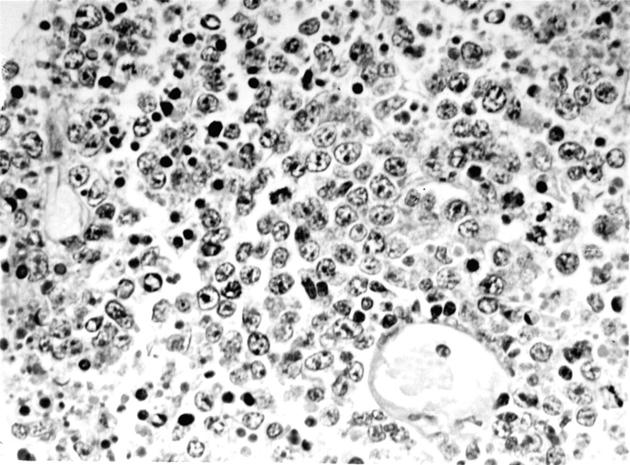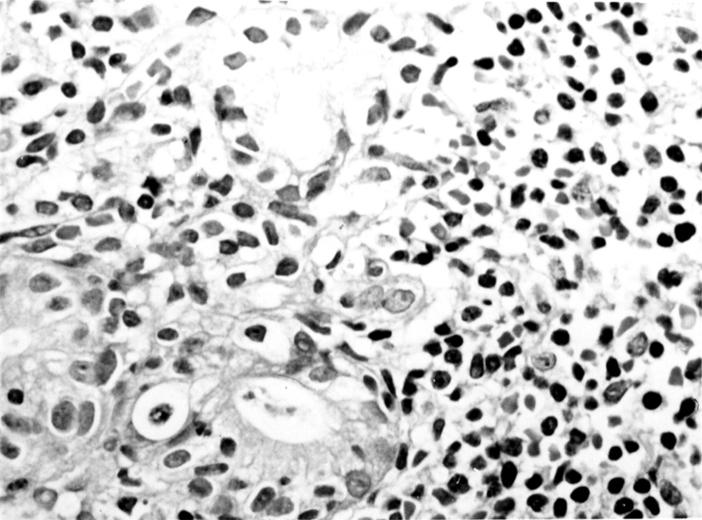Abstract
BACKGROUND—Most low grade gastric lymphomas arising from the mucosa associated lymphoid tissue (MALT) are related to Helicobacter pylori colonisation. Cases with disease limited to the stomach can be cured after H pylori eradication and remain in remission for years. In contrast, high grade lymphomas of the stomach, although also related to H pylori, do not usually respond to eradication treatment. CASE REPORT—A 36 year old patient was referred from another hospital with a diagnosis of a low grade gastric MALT lymphoma associated with H pylori. The patient was in stage I and while waiting for the biopsies to be reviewed H pylori eradication therapy was given as the first step of treatment. Review of the biopsies showed a high grade immunoblastic lymphoma with areas of low grade gastric MALT lymphoma (high grade gastric MALT lymphoma or diffuse large B cell lymphoma with areas of MALT type lymphoma of the WHO classification). The patient received no further treatment but has been closely followed up for 32 months with sequential endoscopies to obtain biopsies for histological studies, H pylori cultures, and polymerase chain reaction analysis of the IgH gene. RESULTS—After H pylori eradication the patient had a complete histological response that has been maintained for 32 months. Monoclonal IgH gene rearrangement persisted for 32 months. CONCLUSION—The response of this patient indicates the possibility that some cases of high grade gastric MALT lymphoma (possibly patients in stage I with a superficial or limited disease) may still be responsive to H pylori antigenic drive and may be cured with eradication therapy. Prospective studies should be performed to identify patients with high grade gastric MALT lymphomas that may respond to eradication therapy and be spared of other more aggressive treatments. Keywords: mucosa associated lymphoid tissue; lymphoma; gastric lymphoma; immunoblastic lymphoma; Helicobacter pylori
Full Text
The Full Text of this article is available as a PDF (166.2 KB).
Figure 1 .
Infiltration of the lamina propria with large lymphoid cells: immunoblastic lymphoma (haematoxylin-eosin).
Figure 2 .
Diffuse infiltrate of small centrocytoid lymphocytes in the lamina propria with gland destruction (lymphoepithelial lesion): low grade mucosa associated lymphoid tissue lymphoma in other sections of the same biopsy (haematoxylin-eosin).





